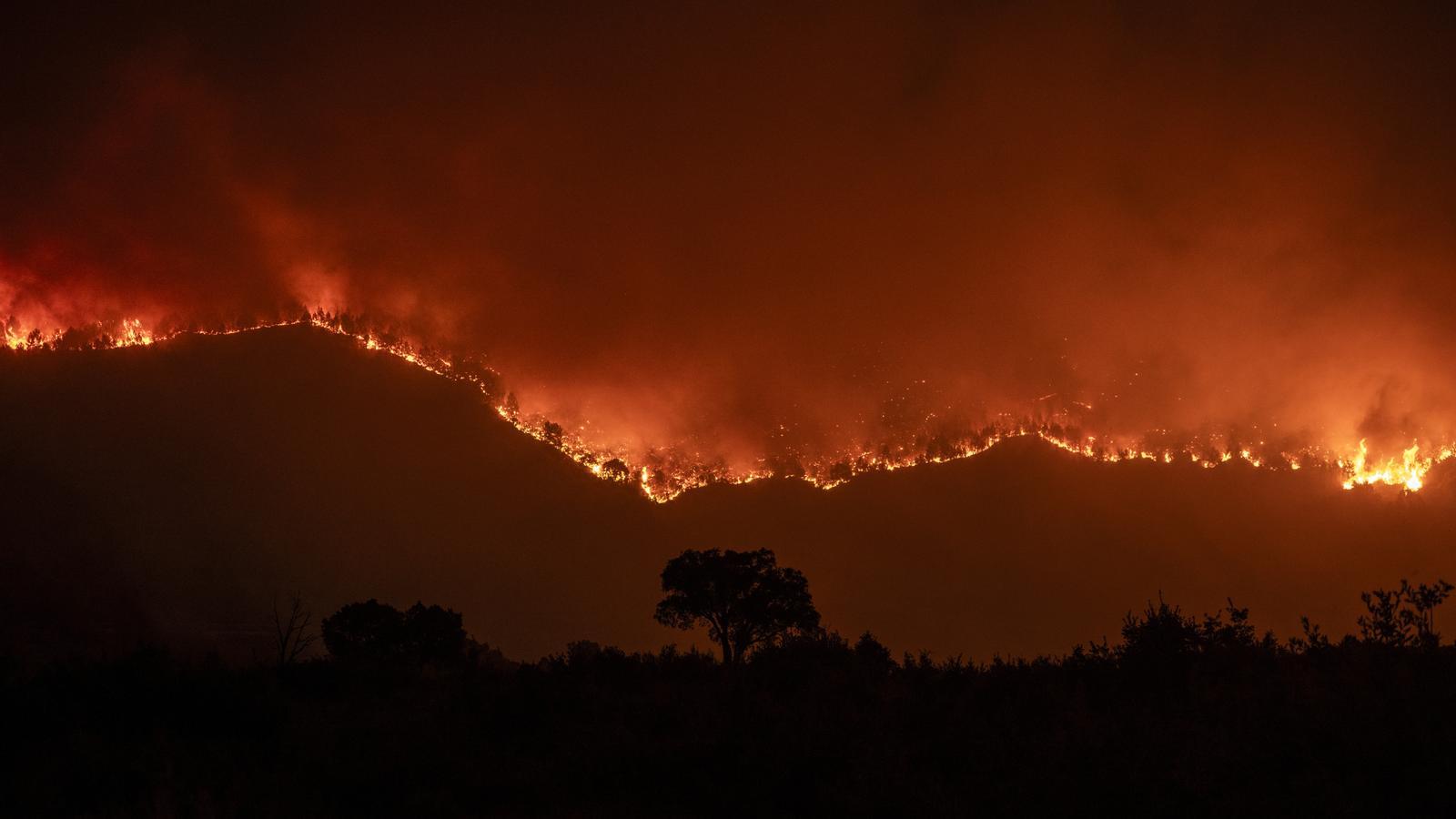

Galicia is a complex and diverse country, yet everything pushes us toward assimilation, simplification, and concentration. This Galicia that is burning without restraint is, to put it simply, the Inland Galicia, a territory that was abandoned by most of its inhabitants in the second half of the last century.
What has been burned will be a cruel wound on an old and weak body. An aging social body caught in the web of patronage, a trap that keeps it locked in resignation and abandonment. The province of Ourense and the provincial capital itself offer grotesque anecdotes and images: the political power of the Popular Party has been entrenched in the provincial council for so many years that it is already identifiable. Without this iron control over this territory, the political dominance of the PP in Galicia cannot be explained. And the political factor is also decisive in explaining this tragedy.
The context in which this is happening is one of exceptionally high temperatures. Climate change seems to exist, and in a territory that was, for the most part, abandoned. They had been burning parts of Galicia for some time when in the Pontevedra bullring, the only one still in operation in Galicia - like an anachronism of the worst rancid castisismo - the president of the Xunta, Alfonso Rueda, and the president of the PP, Núñez Feijóo, they made Cayetano and they felt a shiver at the blood: a bull bathed the teacher Morante de la Puebla. Former president of the Xunta, Feijóo, naturally expressed his solidarity: "All my support to Morante de la Puebla after the blow he suffered today in Pontevedra. He teaches us that classic and pure bullfighting is never free from danger."
As I write this, according to the Xunta (regional government), 68,000 hectares have already been burned. But according to satellite images, it appears to be much more. Similarly, when people were searching for information about what was happening, regional television and radio stations were broadcasting courtship programs and game shows: it was on the 24-hour TVE channel where we could get the facts. This was the initial response for three days, and concealment remains, to a large extent, the information guideline for the media controlled by the Rueda administration. The Regional Ministry of Rural Environment has just reported that they have recorded 492 fires in August alone... but they only reported 44.
What's burning? Abandonment. Just like in the lands of León and Zamora, but we're not dealing with wasteland: until the early 1960s, these were cultivated. All of this is the result of dependence, of not having their own political structures to plan and develop their own natural resources. The province of Ourense and the entire Galician territory was, and still is, an inhabited territory with history and resources. But now the entire territory of Galicia—and they're already planning to do so at sea as well—is crisscrossed with wind farms, and Xunta, with a Portuguese-owned multinational, plans to install a macrocellulose plant at the headwaters of the Ulla River, which crosses the four provinces and flows into the Arou estuary. It's a project that has gotten in Rueda's way, and it seems that, in addition to very active social opposition, he's run into all kinds of administrative obstacles due to the absurdity itself.
And it's politics that should find the solutions, where a partisan struggle continues to be resolved, delaying what is immediately necessary: putting out the fires. The Xunta (regional government) arrived this August with 200 fire service positions unfilled, and two days ago it asked the central government to send 200 members of the EMU (United Left of the Autonomous Community of Galicia). And they continue to complain that central government aid is insufficient or never arriving: it's daily bread. The PSOE (Spanish Socialist Workers' Party) in Galicia remains silent and expresses itself only through Sánchez, but the BNG (Nationalist Party), the main opposition party, maintains a low profile of criticism in this moment of urgency, although it has already announced that after this, Galicia will have to review its territorial model. And its national model.
